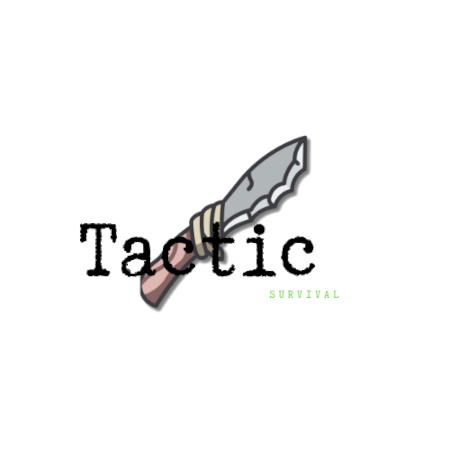The COVID-19 pandemic has taught us the importance of being able to learn and adapt to survive. We’ve come face to face with many challenges and uncertainties. But here’s something interesting: humans are very good at adjusting to tough times. And we don’t just forget these adaptations once the crisis ends.
Patrick Loller, a comedian and veteran, compared the difficulties of returning to normal life for soldiers with the challenges of life post-pandemic. Just like veterans, we’ve had to change a lot during the pandemic. We became more cautious, distanced ourselves emotionally, and learned to solve problems alone. Moving forward, it’s key that we see this as a new beginning, not a return to how things were.
We’ve gained important lessons, new skills, and dealt with grief and hardship during the pandemic. Letting go of these adaptations and becoming more aware will take time. Teachers are critical in helping students through this by encouraging them to reflect. They also offer support whenever it’s needed. Looking out for each other and pushing for changes that make our environments safe is crucial for everyone involved.
Key Takeaways:
- Adapting to traumatic situations is a natural survival mechanism.
- Transitioning to a post-pandemic world requires recognizing the need for adaptation.
- Teachers can support students by fostering moments of reflection and providing support.
- Advocating for systemic changes is crucial for creating safe environments.
- Grief and trauma from the pandemic require a gradual process of healing and unlearning survival adaptations.
The Role of Adaptations in Survival
Adaptations are key for survival. They fall into two main groups. Structural adaptations are about an organism’s body. Behavioral ones touch how they act.
Structural changes help organisms fit their homes. Succulents are a great example. They keep water in their bodies to live in hot, dry deserts. This lets them survive without water for long times.
Behavioral changes are about actions. Gray whales migrate each year to find good places to live and have babies. This helps them cope with changes and find food.
Adaptations can make entirely new species. Marsupials in Oceania are an example. They each have unique traits to fill different roles in their environment. This led to many new species. African cichlid fish did the same thing in their lakes.
Organisms can also evolve together in coadaptation. An example is hummingbirds and flowers. Hummingbirds’ unique features let them drink from special flowers. These flowers then get pollinated and serve as food for the birds. It’s a win-win.
Understanding adaptations is crucial. They ensure success in survival, breeding, and the future of a species. Whether it’s how they look or what they do, every change helps.
Examples of Structural and Behavioral Adaptations:
| Adaptation Type | Organism | Example |
|---|---|---|
| Structural Adaptation | Succulents | Storing water in stems and leaves to survive in deserts |
| Polar Bears | Thick layer of fat and fur for insulation in cold environments | |
| Behavioral Adaptation | Gray Whales | Seasonal migration to find optimal feeding and breeding grounds |
| Honeybees | Dancing to communicate the location of food sources |
Adaptations show the amazing diversity of life on Earth. Every organism, big or small, has something special that helps it survive. This underlines evolution’s endless flexibility and the ability of life to win over challenges.
Lifelong Learning for Survival in a Changing World
Learning throughout your life is key to doing well in a world that keeps changing. People who learn and grow are the most successful. With technology always changing, being able to learn quickly is very important. By 2025, half of all workers will need new skills. And, 120 million people will need to learn new things because of technology such as AI. Although tech skills are crucial, other top skills include thinking logically, solving tricky problems, leading, and being tough when things get hard.
Now, it’s more about how we use what we know, not just what we know. Learning all the time helps us be ready for new things, handle changes, and feel fulfilled. As our world changes more, we must keep learning to do well in our lives and jobs.
Here are some important skills to learn for life:
- Analytical thinking: Improve how you look at facts and make smart choices.
- Critical thinking: Get better at judging different ideas and facts without bias.
- Leadership: Learn to lead and inspire others for the better.
- Technology use: Keep up with new tech and learn to use it well.
- Resilience: Develop the ability to recover and move on after tough times.
- Problem-solving: Enhance your skills in coming up with fresh solutions.
The Importance of Lifelong Learning
“Education is the most powerful weapon which you can use to change the world.” – Nelson Mandela
Staying sharp through ongoing learning is a must. It helps us get the skills and knowledge we need to do well in a world that’s always changing. When new jobs and challenges come, being able to learn new skills quickly gives us a big head start.
Lifelong learning isn’t just about books. It’s about being curious, wanting to grow, and fixing yourself up. It pushes us to want new knowledge, accept new ways of thinking, and figure things out well. By always learning something new, we can do well, even when things are uncertain.
Technology has changed the way we live and work in a big way. New tech like robots and AI is making big changes in how things are done. To fit in this new digital world, we must keep learning all the time to meet the new needs of our jobs.
Learning all the time doesn’t just help our careers. It makes us grow as people and find joy. It opens up chance for new things, widens our view of the world, and helps us grow inside. Always wanting to know more and get better can make us happier and more fearless.
The Benefits of Lifelong Learning
There are many good things that come with always learning:
- Being able to change and handle new things well.
- Learning how to think deeply to fix complicated problems.
- More job options and better chances in a fast-changing work scene.
- Getting to know yourself better and finding new hobbies.
- Keeps your brain sharp and working well.
- Meeting new people who think like you and growing your work connections.
By always learning, we stay ahead, fit new changes, and do well in a world where things keep shifting.
| Skills for the Future | Description |
|---|---|
| Analytical Thinking | Ability to analyze information and make informed decisions. |
| Critical Thinking | Capacity to evaluate ideas and arguments objectively. |
| Leadership | Capability to drive positive change and influence others. |
| Technology Use | Becoming proficient in the use of technology and leveraging it effectively. |
| Resilience | Capacity to adapt and bounce back from setbacks. |
| Problem-Solving | Ability to find creative solutions to complex problems. |
The Importance of Skill Development for Survival
Skill development is key for surviving and growing in our fast-changing world. As jobs change, we need new skills to stay competitive. Thinking critically, solving complex issues, and innovating are valuable in many fields. Creativity and initiative help us face new challenges and spot chances for success.
Today, technology is everywhere, and being tech-savvy is a must. Learning about technology helps us use digital tools better. This boosts our work, our talks with others, and our overall efficiency.
But it’s not just about tech skills. Being resilient, handling stress, and being flexible are also crucial. These abilities help us stay calm in tough times. They also help us make smart choices and come up with good plans.
Getting better at different skills is vital for survival and success. We can improve through training and coaching. Learning more and getting better at what we already know broadens our understanding and sharpens our skills.
When we become skilled at something, we’re more ready to face problems. Like knowing how to handle emergencies with bushcraft. Being able to find food, water, understand nature’s signs, and make shelters can save lives.
Learning survival and bushcraft skills helps us connect with nature. It makes us more aware of the natural world, its patterns, and its gifts. This fosters love and respect for the Earth. Also, learning to solve problems in tough situations boosts our brain power and flexibility in all aspects of life.
In the end, improving our skills is vital for survival and success. It helps us adapt, solve problems, and boosts our confidence. Growing our skills means we’re less reliant on others. It brings us closer to nature and improves our brain’s ability to adapt. Skill development is the secret to reaching our full potential, in work and life.
Conclusion
Today, learning and being able to adapt quickly are key to making it in the fast-paced world. It’s about always growing and getting better. The COVID-19 pandemic has shown us just how important it is to be able to change and learn new things. It’s not just about surviving; it’s also about doing well in different situations.
Learning all the time helps us be more flexible and keeps us in the loop with new developments. It makes our lives better. To do well later on, people need to focus on certain skills. These include being a good thinker, solving problems, being a leader, and staying strong when things get tough. By always learning and improving our skills, we can face the challenges of the present and the future.
The blog “Learning and Adapting for Survival” is getting popular, with 128 views and more. This shows it’s a topic that many find interesting. If you want to learn more and gain real skills in surviving and bushcraft, check out the Campcraft Outdoors Modern Survival Course. This course will teach you the important skills for surviving in different places.


